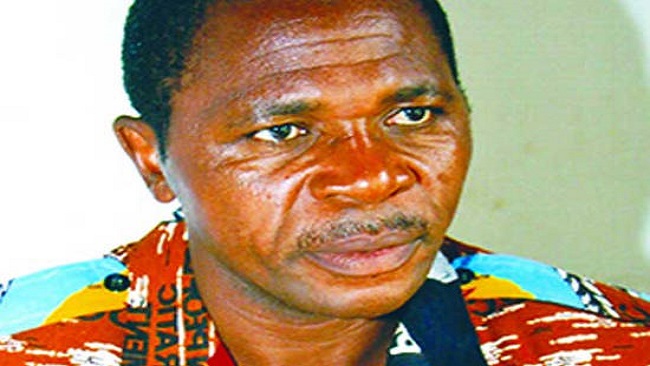Minister Paul Atanga Nji: Taking the last kicks of a dying horse
Minister Paul Atanga Nji has been told by the attorney general of the Special Criminal Court to pay the state of Cameroon the sum of 365 million FCFA which he reportedly swindled during his time at the Cameroon Postal Cheque Centre. The amount was long established after a team from the supreme state audit revealed its findings to the presidency of the republic.
Cameroon Intelligence Report gathered that in a letter dated July 21, 2016, the attorney general of the Special Criminal Court reminded Atanga Nji, Minister of Special Duties at the Presidency of the Republic of the severity of the situation. Attorney General, Justine Aimée Ngounou Tchokontchieu noted in the correspondence to the so-called CPDM minister that the decision was based on revelations from the supreme state audit verification mission.
Local newspaper reports have also hinted that Paul Atanga Nji obtained huge sums of money via three cheques, with the complicity of certain employees of the Cameroon Postal Services (Campost). There are confirmed reports that Paul Atanga Nji received three dubious transfers. Two of these transfers, respectively 365 million and FCFA 20 million CFA francs were made from a bogus account. The third transfer, that involved the sum of 150 672 000 FCFA, was made also from an account without provisions.
Minister Atanga Nji, the man widely believed to be running the consortium of CPDM crime syndicates in the North West region has ever since been under investigation on the thorny issue concerning the financial management of CAMPOST from 2004 to 2010. In November 2014, our chief intelligence officer in Yaounde observed that Atanga Nji sent a letter to the Director of the Civil Cabinet at the Presidency of the Republic in which he suggested that he was prepared to give evidence before prosecutors at the Special Criminal Court. A source at the presidency noted Atanga Nji did ask for permission to attend a hearing at the court which was never granted.
Depicting the Special Criminal Court established to prosecute alleged corrupt government officials and the several Alibabas responsible for pilfering from the public treasury as the President’s court is no misnomer. We call it the President’s court because it is one instrument of power through which the President is reining in on perceived opponents from within his CPDM power conduit. An attribute of a genuine court is the fairness of the trial proceedings in cases which are brought before the court for trial. It is not the number of convictions entered against accused. A court is legitimate and recognized as such because of its exercise of judicial, executive, legislative and administrative independence. A court that is independent must be accessible to all citizens after all, is equality before the law, not a constitutionally protected value? The Special Criminal Court is lacking in these attributes of impartiality, judicial independence and accessibility. It is perceived more as the President’s Court than a Court of Justice.
Establishing this court was President Biya’s way of saving himself the embarrassment of being humiliated during his perennial trips abroad as the President of the most corrupt countries in the world. This ranking of the country as the most corrupt or one of the most corrupt countries had a potential to hamper President Biya’s personal pecuniary interests far from the borders of Cameroon. There was therefore a personal interest need to establish the court. Another personal interest need was to avail himself of a legal tool under his direct control to consolidate absolute power, blackmail potential rebels and competitors within the system and to stifle any form of institutional opposition. He perceived the court as a tool with which to whitewash his more than thirty years of corrupt governance and the rape of the economy.
By Soter Tarh Agbaw-Ebai with files from Cameroon-info.net and Sama Ernest




